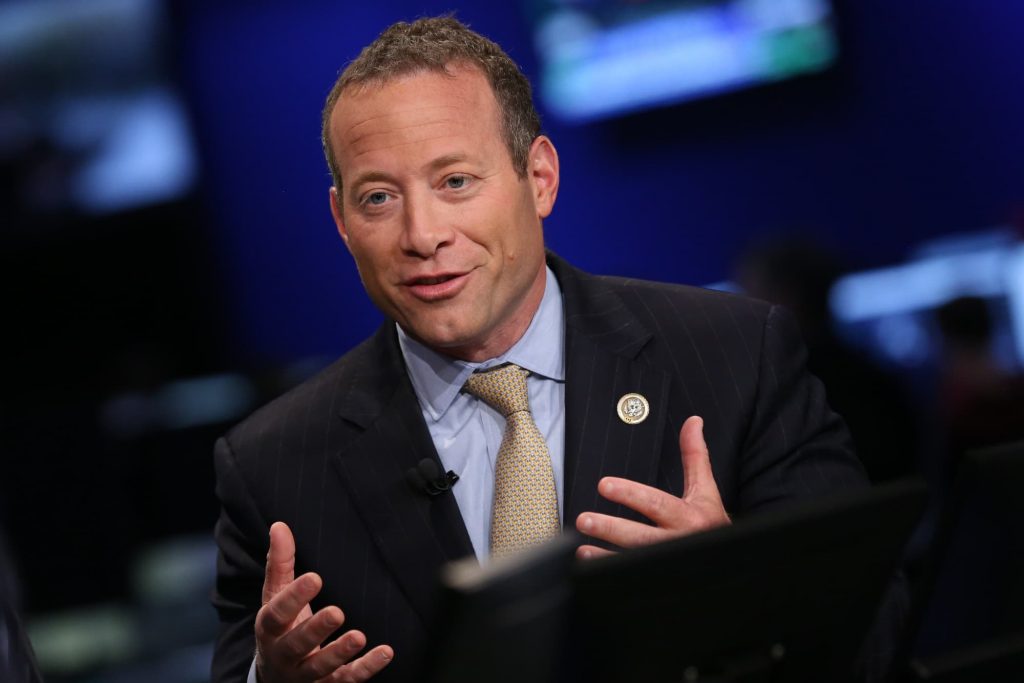Check out what’s clicking on FoxBusiness.com.
U.S. stocks reversed course overnight and are trading solidly higher hours before Tuesday’s opening bell.
| Ticker | Security | Last | Change | Change % |
|---|---|---|---|---|
| I:DJI | DOW JONES AVERAGES | 34566.17 | -171.89 | -0.49% |
| SP500 | S&P 500 | 4401.67 | -16.97 | -0.38% |
| I:COMP | NASDAQ COMPOSITE INDEX | 13790.918789 | -0.24 | -0.00% |
Investors are closely watching the situation near Ukraine as Russia continues to mass troops in the area in what many believe will ultimately be a Russian invasion.
Wall Street will see the release of more fourth-quarter earnings reports Tuesday as hotel and timeshare giant Marriott International, auto parts maker BorgWarner and dental supplies provider Henry Schein kick off the earnings parade when they report their October-through December results ahead of the opening bell.
REGULATORS PROBE BLOCK TRADING AT MORGAN STANLEY, GOLDMAN, OTHER WALL STREET FIRMS
After the close media and entertainment company ViacomCBS, online lodging marketplace Airbnb and high-end hotel and casino operator Wynn Resorts will also provide a picture into their earnings.
On Wall Street, the S&P 500 fell 0.4% to 4,401.67 after falling as much as 1.2% shortly after the U.S. said it was closing its embassy in Ukraine and moving all remaining staffers there to a city near the Polish border. Russia signaled Monday it could continue talking about the security grievances that have led to the crisis and offered some hope that war could be averted, even as Western allies have warned that Russian troops could move on Ukraine as soon as Wednesday.

U.S. stocks reversed course overnight and are trading solidly higher hours before Tuesday’s opening bell. (Courtney Crow/New York Stock Exchange via AP)
The Dow Jones Industrial Average fell 0.5% to 34,566.17 and the Nasdaq composite ended essentially flat, at 13,790.92, after having been up 1% in the early going.
Smaller company stocks, which had been on pace for gains, also fell. The Russell 2000 slid 0.5%, to 2,020.79.
Wall Street is also trying to gauge how stocks and the broader economy will be affected from another source of uncertainty: How far and how quickly the Federal Reserve will move to raise interest rates to quash surging inflation.
The central bank is expected to start raising its benchmark interest rate in March and Wall Street expects as many as seven rate hikes this year after last week’s report that inflation jumped 7.5% in January from a year ago, the fastest increase in four decades. Prices also rose 0.6% from December to January, the same as the previous month, suggesting that price gains still aren’t slowing, as many economists and Fed officials have hoped.
The Fed typically responds to high inflation by making borrowing more expensive, which slows spending and the pace of price increases.
“The market is really paying attention to geopolitical stuff right now, whether it’s stuff out of Ukraine or in D.C. with respect to what the Fed is going to do,” said Willie Delwiche, investment strategist at All Star Charts. “The bigger story is inflation and rates. The Fed is catching up to inflation, the bond market is now taking the Fed seriously and the question is ‘what do U.S. stocks do in that environment?”
OIL EASES AS UKRAINE HINTS AT CONCESSIONS TO RUSSIA
Investors will also get more updates on inflation and how that might be impacting spending. The Labor Department will release its January report for prices at the wholesale level on Tuesday and the Commerce Department will release its January retail sales report on Wednesday.
Meanwhile, Asian shares were mostly lower Tuesday, echoing a decline on Wall Street, amid concerns about a potential Russian military invasion of Ukraine.
Japanese shares started with a boost from bargain-hunting after recent losses, but the buying quickly ran out of steam. Data released Tuesday showed the economy grew at an annual rate of 5.4% in October-December, when pandemic restrictions were relaxed for a time after infections fell sharply before rebounding with omicron outbreaks.
“While Japan’s outlook is challenged by virus resurgences and supply chain disruptions, the Q4 data highlighted the potential for pent-up consumer demand once virus risks eventually abate,” said Yeap Jun Rong, market strategist at IG in Singapore.
Japan’s benchmark Nikkei 225 shed 0.9% in afternoon trading to 26,839.51. Australia’s S&P/ASX 200 sank 0.5% to 7,206.90. South Korea’s Kospi lost 1.1% to 2,673.82. Hong Kong’s Hang Seng declined 1.2% to 24,267.64, while the Shanghai Composite rose 0.1% to 3,431.80.
In energy trading, benchmark U.S. crude lost 51 cents to $94.95 a barrel in electronic trading on the New York Mercantile Exchange. It climbed 2.5%, while natural gas prices jumped 6.4% on Monday. Russia is a major energy producer and military action that disrupts supplies could jolt markets and global industries. Brent crude, the international pricing standard, fell 41 cents to $96.07 a barrel.
GET FOX BUSINESS ON THE GO BY CLICKING HERE
In currency trading, the U.S. dollar sank to 115.33 Japanese yen from 115.55 yen. The euro cost $1.1320, up from $1.1306.
___
AP Business Writers Damian J. Troise and Alex Veiga contributed.


